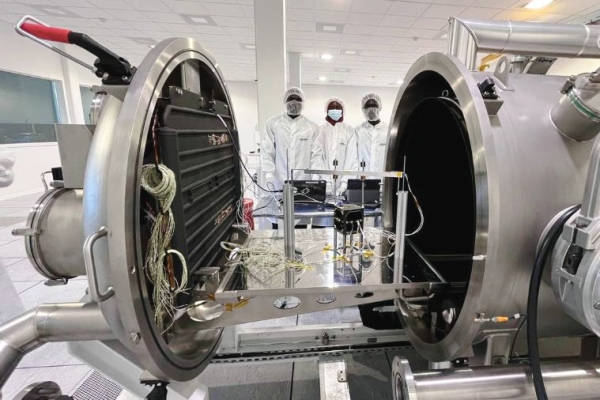In January 2019, Senegal signed a memorandum of understanding with France's National Centre for Space Studies and Ariane Group. The first spinoffs were expected for 2021, but it seems things are finally falling into place.
The Republic of Senegal will receive its first satellite, baptized GAINDESAT, on November 10, after three years in the making, the Ministry of Higher Education, Research, and Innovation (MESRI) announced in a press release published on its web portal on Friday, October 13.
"After three years of hard work, Senegal's first satellite will be delivered on November 10, 2023, during a ceremony to be presided over by the MESRI on the premises of the Centre Spatial Universitaire de Montpellier [CSUM] in France," the release points out.
The nanosatellite is part of the SenSAT space program launched by the government to meet the country's needs for space products and services and to make the space sector a key driver for its socio-economic and sustainable development. It is the result of a partnership agreement signed, in January 2019, by MESRI and the Centre Spatial Universitaire de Montpellier.
The €1 million agreement catered for the training of eight engineers and five technicians in the manufacture and operation of space tools. Under the supervision of MUSC engineers, the beneficiaries designed and built Senegal's first satellite.
Once the satellite is delivered, the government will set a date for its launch. The satellite was initially scheduled for launch in 2021, but COVID-19 and its impacts forced the government to postpone the operation until this year.
According to Senegalese authorities, the nanosatellite will connect to all the stations on each pass, draw in all the data recorded by these stations, and transmit them directly. The data, in turn, will help prevent and combat bushfires, floods, and erosion, as well as develop agriculture, among other things.
Samira Njoya



















